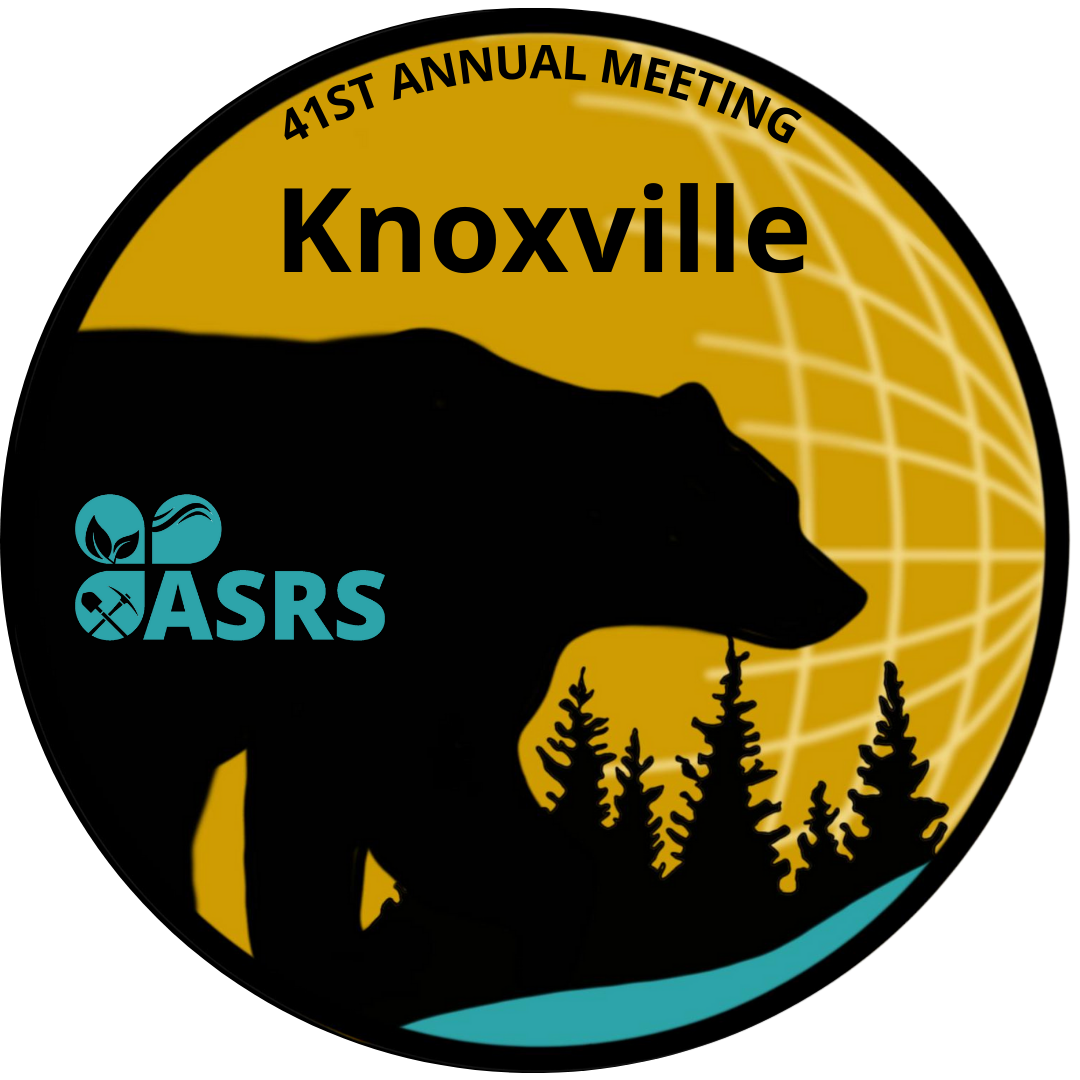
Call for Abstracts
Joint Meeting of the American Society of Reclamation Sciences and the Appalachian Regional Reforestation Initiative
June 2 – 5, 2024; Knoxville, TN
“Reclamation in Diverse Settings”
The Joint Meeting of the American Society of Reclamation Sciences (ASRS; formerly the American Society of Mining & Reclamation) and the Appalachian Regional Reforestation Initiative (ARRI) will be held in the Knoxville Convention Center in downtown Knoxville, June 2-5, 2024. Our conference theme, “Reclamation in Diverse Settings,” highlights our ongoing work of thinking more broadly about the sorts of spaces we deal with as reclamationists—yes, we still care deeply about mining-influenced landscapes, but lands and waters beyond mining need our attention as well. We welcome you to join us in Knoxville to share and hear about teaching, researching, and practicing reclamation, across diverse spaces and settings.
Abstracts Due March 1, 2024 | Notification of acceptance by March 15, 2024
- Abstract submissions should be 250 – 300 words, include author names and affiliations, a descriptive title, and 3-5 keywords. Units should be SI.
- Abstracts accepted for oral and poster presentations, as well as video submissions
- Submit online at asrs.us/2024-conference/
- Contact sena@uky.edu to organize a special session, workshop, or roundtable discussion
Give an oral presentation: Presentations should critically engage a topic relevant to the science, teaching, and/or practice of reclamation. Presentations could be a case study, a research project, a policy analysis, etc. Graduate and undergraduate students are encouraged to give presentations and will be eligible to compete for presentation awards.
Present a poster: Poster presentations are perfect for sharing preliminary results, case studies or other topics that aren’t quite fully developed for an oral presentation. Undergraduate and graduate students are welcome to give poster presentations and will be eligible to compete for presentation awards. Posters should be no more than 4 x 6 ft.
Screen your reclamation-related film: Back by popular demand, we welcome reclamation video submissions for a Reclamation Film Festival! Both amateur and professional films are welcome. Submit an abstract for your reclamation-themed video along with a submission of your video as a link to a hosting platform such as Vimeo or YouTube.
Organize a special session: Special sessions will be a block or panel of conference oral presentations unified by a particular theme or topic. To organize a special session, email Kenton.sena@uky.edu a theme or title and abstract for your special session along with a list of specific topics you would be interested in including. Special session information will be added to the abstract submission form and included in subsequent calls for participation. If you have specific presenters already lined up for your session, send the presenter list with your session abstract.
Offer a workshop: Workshops are intended to help participants develop a particular skill or proficiency related to research, teaching, and practice in reclamation. To organize a workshop, send an abstract describing the workshop, including target audience and what you hope participants will gain from participating in the session, to kenton.sena@uky.edu.
Facilitate a Roundtable Discussion: Roundtable discussions will provide an opportunity to have a more sustained conversation around a particular theme. Facilitator(s) for a roundtable discussion should prepare a set of guiding questions to encourage conversation in small groups and/or as a room. To organize a roundtable discussion, send an abstract to kenton.sena@uky.edu describing the central themes/ideas you would like to discuss, posing guiding questions, and identifying any particular groups or audiences you think would benefit most from participating.
Example Topics:
- Reclamation across Tennessee
- Historic Mining Districts
- Reclaiming Quarries
- Navigating a post-coal landscape
- Reclamation across Appalachia
- Soils in reclamation: stockpiling native soils and using soil substitutes
- Soil quality and health in reclaimed sites
- Revegetating during reclamation: seeding and vegetation establishment
- Reforestation: establishing forests through reclamation
- Reclaiming aquatic systems: streams, rivers, and wetlands
- Water quality improvement: active/passive water treatment
- Engaging community members and stakeholders
- Post-mining land uses and endpoints
- Innovative reclamation designs
- Use of drones/UAVs in reclamation planning and monitoring
- GIS/Mapping: Tips, tricks, and tools
- Reclamation for wildlife habitat
- Reclaiming abandoned and legacy mined lands
- Teaching and learning in reclamation
- Reclamation in urban and other settings
- Other topics
For more information, see the conference website (asrs.us/2024-conference/) or contact Jennifer Franklin (jafranklin@utk.edu) or Kenton Sena (kenton.sena@uky.edu)

